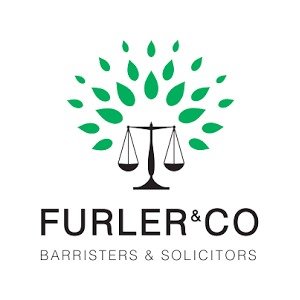Best Trusts Lawyers in Clare
Share your needs with us, get contacted by law firms.
Free. Takes 2 min.
List of the best lawyers in Clare, Australia
About Trusts Law in Clare, Australia
Trust Law in Clare, Australia pertains to the legal mode of holding and transmission of property. In trusts, the legal ownership of the property is set aside by the owner (Settlor) and handed over to a person named as the Trustee, for the benefit of named individual(s) or a charity, referred to as the beneficiaries. The trusts are regulated under the 'Trust Act 1936' and 'Trustee Act 1936' of South Australia which includes Clare.
Why You May Need a Lawyer
You may need a lawyer to handle issues related to Trusts in several situations. These could include drafting a trust deed, understanding the complex laws and regulations governing trusts, dealing with disputes between trustees and beneficiaries, varying the rules of a trust, or terminating a trust. Professionals in trust law help you to navigate the legal landscape ensuring that your assets are managed and protected in the best way possible.
Local Laws Overview
Local laws in Clare, Australia related to trusts are essentially constituted under South Australian legislation. Important aspects include the fact that a trust may be created by a will, deed, or even a verbal agreement. Trustees have the same responsibilities whether they’re managing a small or large trust, and may be held personally liable for losses suffered by the beneficiaries as a result of inadequate management. Moreover, trusts must be administered in accordance with the Trustee Act, serving the best interests of the beneficiaries.
Frequently Asked Questions
What are the types of trusts in Clare, Australia?
There are several types of trusts including Discretionary trusts (Family trust), Unit trusts, Charitable trusts, Testaments trusts (Will trusts), etc. These trusts serve different purposes and work differently.
How can a trust be terminated in Clare?
A trust can be terminated by fulfilling its purpose or based on a decision made by all the beneficiaries, providing they are all capable of making that decision. Termination may also occur upon the completion of a defined term.
Who holds the control in a trust?
The trustee or trustees maintain control of a trust. However, in a discretionary trust, the Appointor has the power to change the trustee, giving them significant control over a trust.
What is a trust deed?
A Trust Deed is a legal document that outlines the rules for establishing and operating your trust. It includes information such as the name of the trust, details of the settlor, trustee, appointor, beneficiaries and rules on how profits are to be distributed.
Can a trust be changed or varied?
Yes, a trust can be varied with the consent of the beneficiaries, provided they are of full age and mental capacity. In some cases, the trust deed may also set out certain circumstances where the trust rules can be amended.
Additional Resources
In Clare, Australia, the Law Society of South Australia and the Trustee Corporations Association of Australia provide resources and helpful information on the subject of Trusts. Moreover, the 'Supreme Court of South Australia' may also be resourceful if there are any legal disputes related to your trust.
Next Steps
If you require legal assistance with Trusts in Clare, Australia, you are advised to seek the services of a solicitor who specializes in Trusts and Estates. Prepare detailed information about the trust, including its objectives, beneficiaries, and assets before your consultation. Remember, choosing the right legal advisor can assist you in managing your trust effectively and in accordance with the law.
Lawzana helps you find the best lawyers and law firms in Clare through a curated and pre-screened list of qualified legal professionals. Our platform offers rankings and detailed profiles of attorneys and law firms, allowing you to compare based on practice areas, including Trusts, experience, and client feedback.
Each profile includes a description of the firm's areas of practice, client reviews, team members and partners, year of establishment, spoken languages, office locations, contact information, social media presence, and any published articles or resources. Most firms on our platform speak English and are experienced in both local and international legal matters.
Get a quote from top-rated law firms in Clare, Australia — quickly, securely, and without unnecessary hassle.
Disclaimer:
The information provided on this page is for general informational purposes only and does not constitute legal advice. While we strive to ensure the accuracy and relevance of the content, legal information may change over time, and interpretations of the law can vary. You should always consult with a qualified legal professional for advice specific to your situation.
We disclaim all liability for actions taken or not taken based on the content of this page. If you believe any information is incorrect or outdated, please contact us, and we will review and update it where appropriate.








